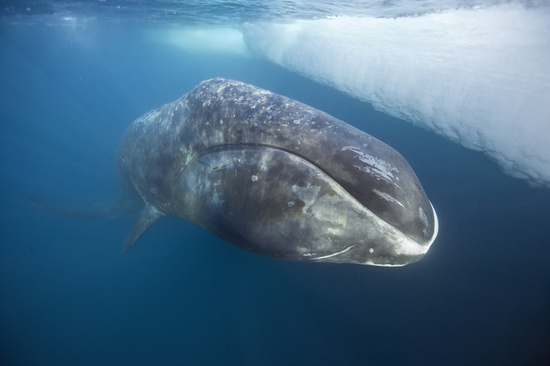Whales are amongst the longest-lived animals on Earth, routinely notching up ages in three figures, and now researchers have taken the first steps to  uncovering the genetic secret to their longevity.
uncovering the genetic secret to their longevity.
Scientists had known for decades that many whale species could outlive humans, but an Eskimo hunting expedition in 2007 hit the ball well and truly out of the park when a group of Inupiats discovered the heads of two-hundred-year-old harpoons embedded in the blubber of one of the animals among their catch!
Whales have probably evolved these natural anti-ageing mechanisms to compensate for their relatively slow rate of growth and late age of reproductive maturity.
But what baffles scientists is that these animals have at least 1000 times as many cells as a human, which should mean that they have a much greater likelihood of developing diseases, like cancer, because more cells mean more opportunities for things to go wrong.
This clearly isn't the case, so these animals must have evolved specialised mechanisms to keep themselves genetically ship-shape as they age. And if we can understand how they do it, it might be possible to use some of the same approaches to alter disease and ageing processes in humans too.
To start the ball rolling, Michael Keane and his colleagues at Liverpool University announced this week, in a paper in the journal Cell Reports, that they have decoded the DNA sequence of the bowhead whale.
By comparing the whale DNA sequence with that from different whales and other less long-lived mammals, like dolphins and cows, the team have been able to pick out some "hot-spot" regions of the DNA code that appear to stand out as unique to the bowheads.
These regions contain genes known to be involved in the repair and activity of DNA, suggesting that part of the bowhead's longevity might be owing to an improved ability to keep disease-causing genetic spelling mistakes called mutations at bay.
Differences were also found in the ways that the whales' cells handle energy, which might be linked to the way that the animals control their body temperatures. However, heat production also leads to the creation of chemical by-products known as free radicals that can damage DNA, so adjustments to this process might also explain why these whales are able to age so gracefully.
The Liverpool team have made all of their results publicly available so that scientists worldwide can use them, a move which, they say, should help to drive forward research aimed at better understanding this and other species.









Comments
Add a comment